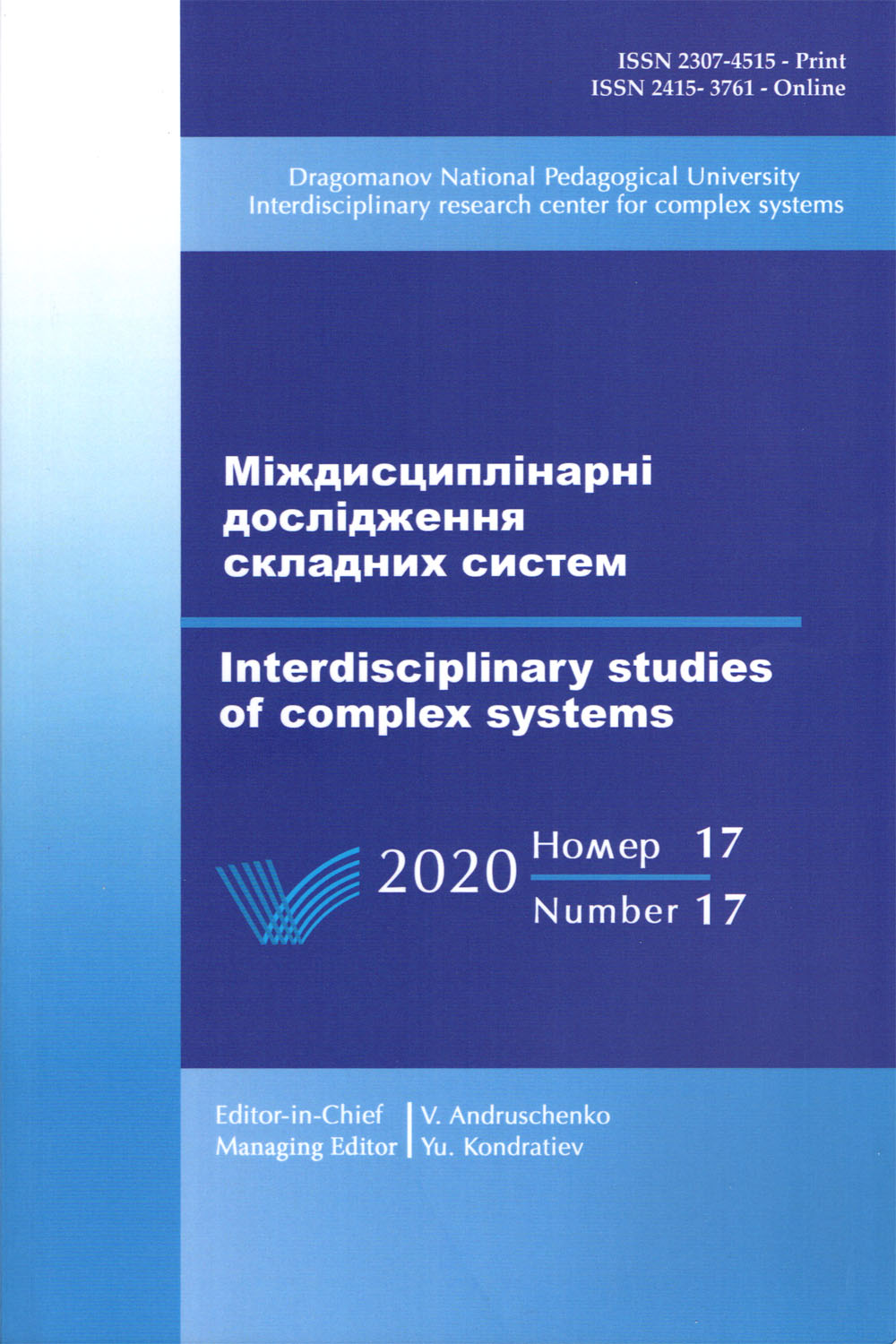Philosophical education: the turn to the applied philosophy
DOI:
https://doi.org/10.31392/iscs.2020.17.023Ключові слова:
applied philosophy, philosophical education, competencies, per-formance, moderation, interdisciplinarity, transdisciplinarityАнотація
Focusing on the substantiation of the process of modernization of the model of philosophical education, the study aims to represent the turn to applied philosophy as a new educational and professional program for training the philosopher. The theoretical basis of the study consists of two main points: the economic position of social epistemology, within which the emphasis is on understanding the social process of knowledge production and distribution of cognitive work, which requires a basis of interdisciplinarity. As well as practical application of a competent approach to philosophical education, which requires its modernization in the context of the requests and practices of today. Scienti c novelty is to justify a turn to applied philosophy in the training of professionals, which enables practice in real-world situations and contexts beyond the realm of philosophy. The normative content of the preparation of the Master of Applied Philosophy, which is provided with a complex of competencies, is rst formulated in the main learning outcomes as a methodology, moderation, performance. Practical signi cance. New techniques introduced in the program of applied philosophy, aimed at the organization and presentation of applied philosophical and scienti c project, the purpose of which is to make their own intellectual inquiry in the chosen practical and applied elds. The transition from a rigid academicism to the reinforced practical aspect of teaching philosophy is fully explained in order for a new understanding of the role of university education to be understood. Namely: to ensure that the student's knowledge does not remain misconstrued or misused.Посилання
a) Academic philosophy. 2018. Philosophical Thought, 6; b) Philosophy in the public space. 2019. Philosophical Thought, 1; c) Philosophy at the University, 2013. Philosophical Thought, 5. [in Ukrainian]
Zakon pro vyschu osvitu http://zakon4.rada.gov.ua/laws/show/1556--18; Zakon pro osvitu http://zakon5.rada.gov.ua/laws/show/2145-19. [in Ukrainian]
Kiyashchenko, L. 2017. Events. Personality. Time. (To the philosophy of transdisciplinarity). Institute of philosophy of RAS. Russian Federation. [in Russian]
a) Modernization of philosophical education: the potential of the master's programe. 2018. Philosophical Problems of the Humanities, 1(27): 5-21; b) Philosophy in the public space. 2019. Philosophical Problems of the Humanities, 2 (28): 5-13. [in Ukrainian]
Master's program Applied philosophy". 2018. http://philosophy.univ.kiev. ua/uploads/editor/Files/Osvit nauk prog. [in Ukrainian]
EU TUNING project, http://www.unideusto.org/tuningeu.
Proleiev, S. 2016. Philosophical Competencies: What Should They Be? Philosophy of Education, 2 (19): 88-96. [in Ukrainian]
Thagard P. 2014. Being Interdisciplinary: Trading Zones in Cognitive Science. Logos, 1 (97): 35-60. [in Russian]
Fuller, S. 2008. Social Epistemology of the University: How to Preserve the Integrity of Knowledge in the So-called Knowledge Society. Epistemology & Philosophy of Science, 1: 158-186. [in Russian]
Coady, David and Chase, James. 2019. The Routledge Handbook of Applied Epistemology, New York, Routledge.
Galison, P. 1999. Trading zone. Coordinating Action and Belief. The Science Studies Reader / Ed. by M. Biagioli. N. Y: Routledge.
Kitcher, Philip. 1990. The Division of Cognitive Labor. Journal of Philosophy, 87: 5-22. [13] Fuller, S. 2002. Social Epistemology. Bloomington: Indiana University
##submission.downloads##
Опубліковано
Номер
Розділ
Ліцензія
Автори, які публікуються у цьому журналі, погоджуються з наступними умовами:- Автори залишають за собою право на авторство своєї роботи та передають журналу право першої публікації цієї роботи на умовах ліцензії Creative Commons Attribution License, котра дозволяє іншим особам вільно розповсюджувати опубліковану роботу з обов'язковим посиланням на авторів оригінальної роботи та першу публікацію роботи у цьому журналі.
- Автори мають право укладати самостійні додаткові угоди щодо неексклюзивного розповсюдження роботи у тому вигляді, в якому вона була опублікована цим журналом (наприклад, розміщувати роботу в електронному сховищі установи або публікувати у складі монографії), за умови збереження посилання на першу публікацію роботи у цьому журналі.
- Політика журналу дозволяє і заохочує розміщення авторами в мережі Інтернет (наприклад, у сховищах установ або на особистих веб-сайтах) рукопису роботи, як до подання цього рукопису до редакції, так і під час його редакційного опрацювання, оскільки це сприяє виникненню продуктивної наукової дискусії та позитивно позначається на оперативності та динаміці цитування опублікованої роботи (див. The Effect of Open Access).











